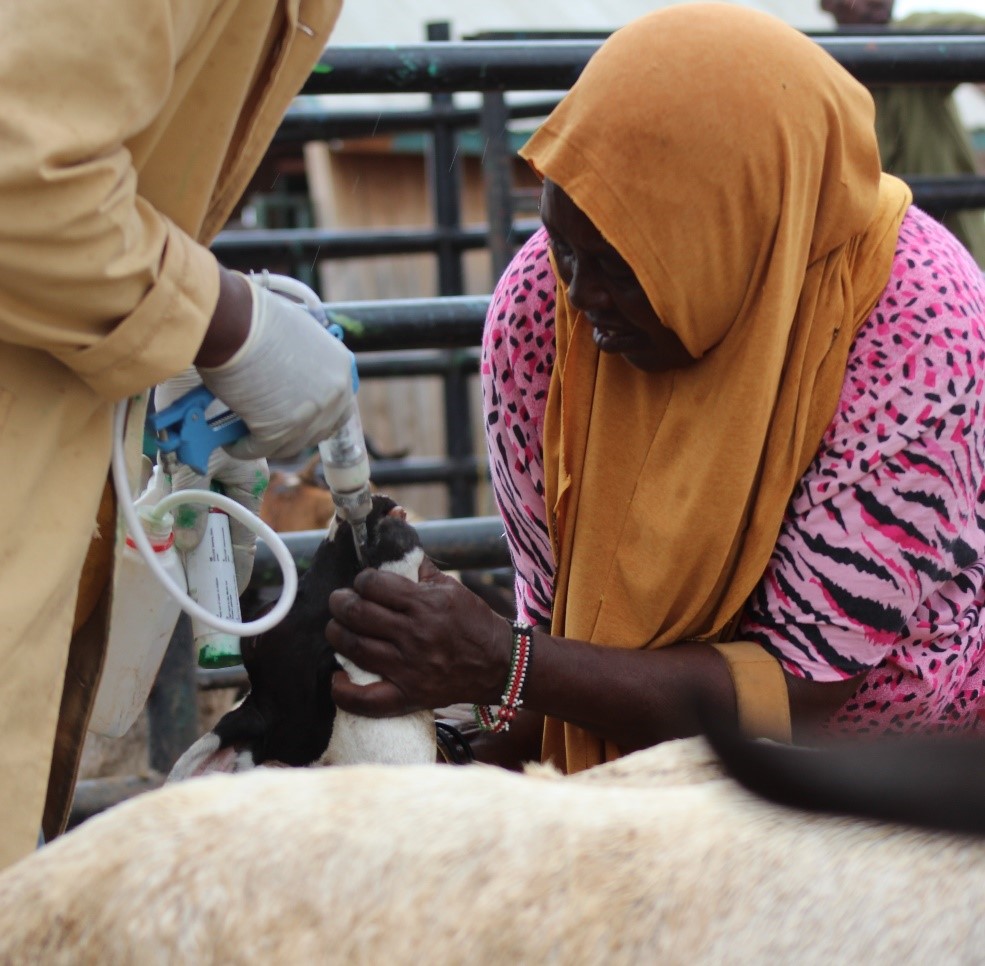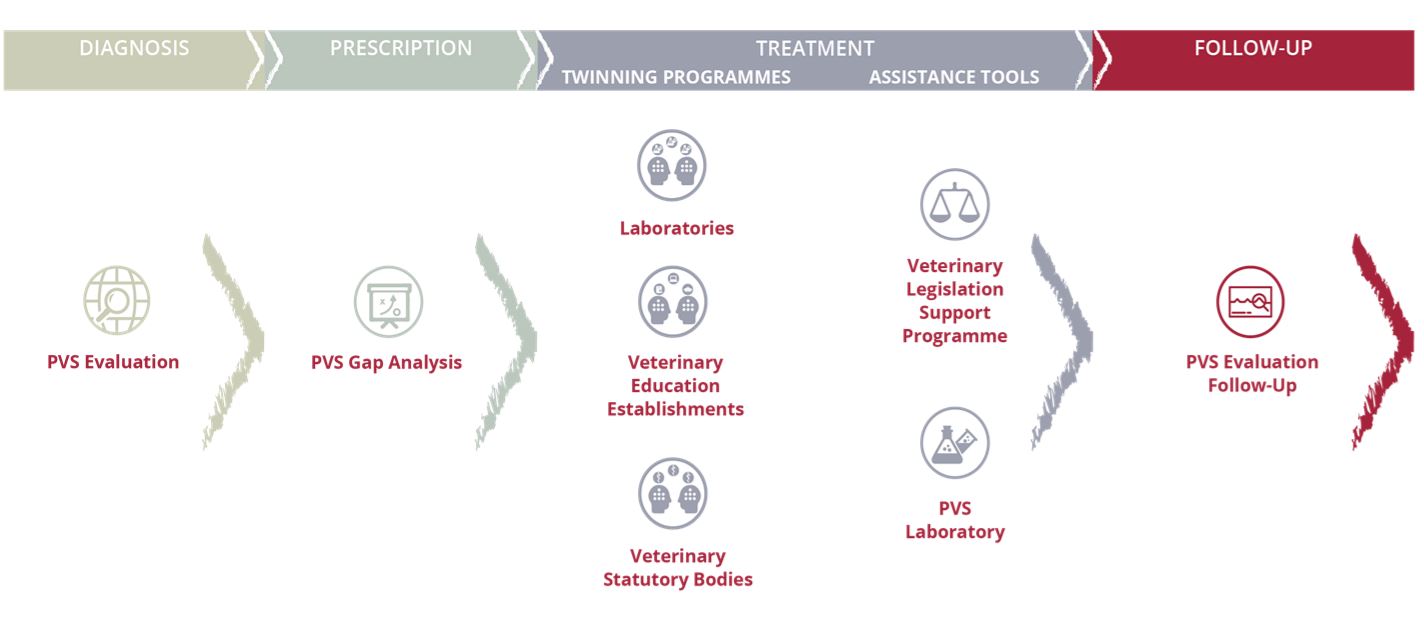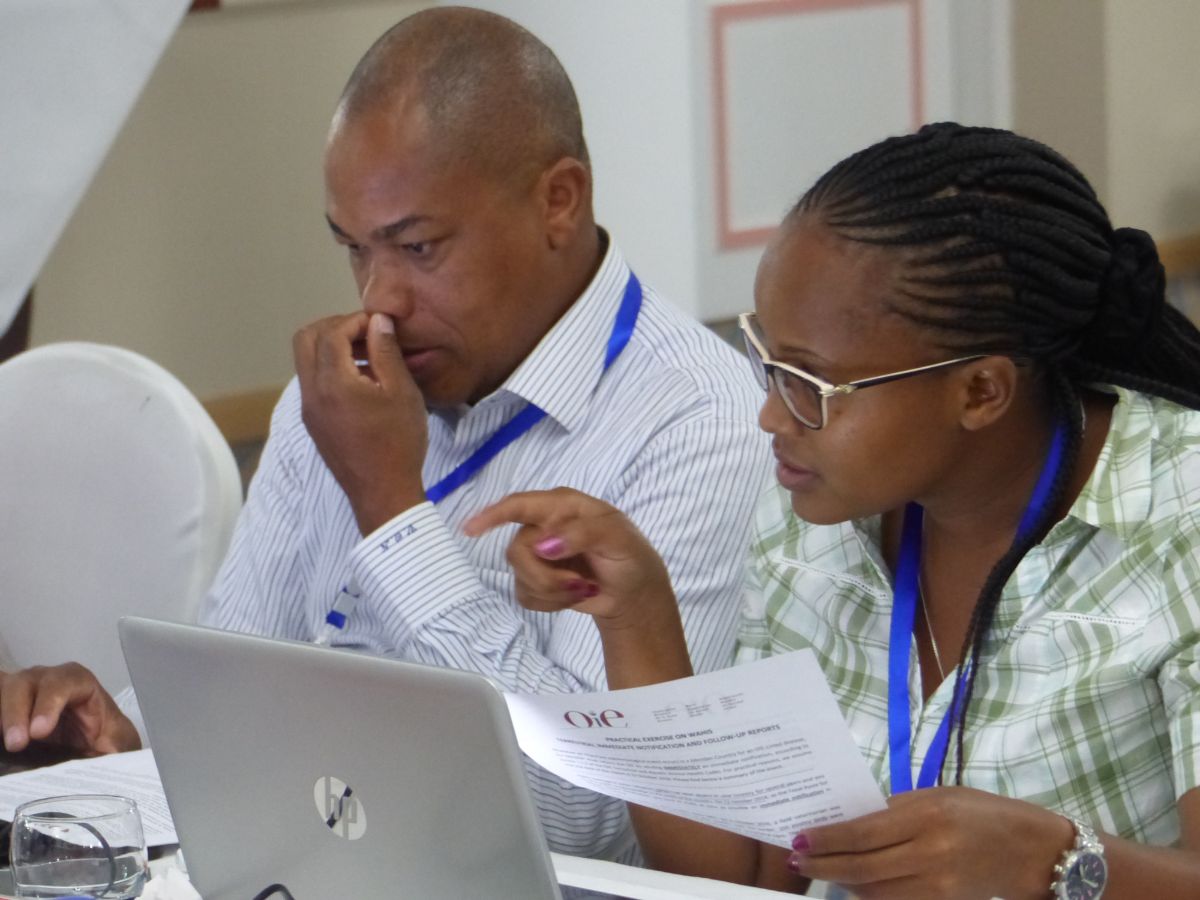The Performance of Veterinary Services (PVS) Pathway is a review and analysis into the way in which a country can enhance its policies and strategies towards fostering effective and sustainable veterinary governance.
PVS Pathway
In Africa, 51 countries, and more specifically, Veterinary Services, are actively engaged in this process, and are tasked to identify their main problems or needs, and defining strategies and activities to improve their functioning and compliance with the international standards of the OIE.
The PVS mission reports document the findings of such missions, and provide the governments with detailed action plans and the mapping of investments.
The SVSDC+R project intends to support the follow-up and the implementation of the recommendations of the Performance of Veterinary Services (PVS) assessments, including by supporting the development of the required regulatory frameworks, through regional capacity-building and in-country support and by assisting Regional Economic Communities in devising effective and sustainable investment plans and programmes at regional or sub-regional level, based on PVS-based country assessments.
A recently concluded PVS Think Tank forum, in part funded by the SVSDC+R project (April 2017) has come up with tangible recommendations, likely to contribute to the achievement of the above objectives, in particular in terms of engaging with regional economic communities, integrating PVS Pathway missions in the strategic planning cycles of Veterinary Services and their line-ministries and supporting the development of in-country capacity for (self) assessment and bespoke PVS mission formats, e.g. focusing on antimicrobial resistance (AMR) or the eradication of peste des petits ruminants (PPR).
Twelve (12) PVS Pathway missions are scheduled by the end of the project. So far all missions were funded through other funding sources but the expectation is that all forthcoming PVS Pathway mission in Africa will be funded by the SVSDC+R project from August 2017 onwards.
Justicia legislation
Veterinary legislation is an essential element of the national infrastructure that enables Veterinary Services to efficiently carry out their key functions, including epidemio-surveillance; early detection and reporting of diseases, including zoonoses; rapid response to and prevention and control of sanitary emergencies; animal products food safety; animal welfare and the relevant certification of animals and animal products for export. In the face of increasing global trade, climate change and the emergence and re-emergence of diseases that can rapidly spread across international borders, the Veterinary Services must be supported by effective and modern legislation. This is why the development and efficient implementation of legislation is included among the 46 critical competencies identified in the OIE PVS Tool for the Evaluation of Performance of Veterinary Services.
The SVSDC+R project supports veterinary legislation modernisation by the OIE Veterinary Legislation Support Programme (VLSP) which, as a follow up to an evaluation of the Performance of Veterinary Services (PVS) and at the request of Members, allows the OIE to conduct missions to help governments that wish to modernise the national veterinary legislation and thereby help the veterinary services meet the OIE standards.
After an initial ‘ identification’ mission the country may request a longer term collaboration with the OIE, under a formal agreement, with the objective of modernising the national veterinary legislation. Through such an agreement, the country then provides the means required (as assessed by the mission) to draft new legislation and the OIE provides an expert to advise the country. The advice is mainly provided by correspondence and the expert would normally undertake one or two missions to the country over a 12 month period. The OIE may also obtain input from other experts during the course of the agreement. As per December 31, 2019, such agreements have been implemented in the following countries :
Data entry clerk
The OIE will develop and validate a methodology based on an thorough analysis of country PVS Pathway reports, in particular the PVS Gap Analysis reports. The methodology will identify the elements to be considered when developing a regional development/ investment plan, as well as the actors that will need to be consulted (at all levels: national, regional and international). The methodology would also outline what, when and how partner countries can best and more effectively invest and identify those investments which will be conducted at regional level.
Moreover this methodology will be validated with main livestock stakeholders in Africa, including AU-IBAR, FAO and the Regional Economic Communities (RECs).
It will be tested in two (sub-) regional investment plans in Africa.
The OIE is currently working on the design of a database which would allow for information to be captured in a standardised way. Central to this endeavour is the concept of country profiles, i.e. the amount and format of information that should be available for any country, engaged in the PVS Pathway process, for use by interested parties, whether (regional and international) technical agencies, RECs or donors.




